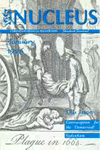'Straight and Narrow?' was the first book my mother ever publicly censored. We had met for a coffee and doughnut in Liverpool Street Station when I placed it on the table. Suddenly, without any warning, she pounced, snatched and turned it face down. I was shocked. She was clearly worried that people would think I was gay - for the subtitle of the book is 'compassion and clarity in the homosexual debate'.
Up until this point I had assumed that the title had meant, in true evangelical style, that the road to heaven is a straight and narrow one. I had missed the ambiguity: Are we who are straight also narrow-minded?
The book ends with a letter to a mythical Christian who is struggling with homosexual desires. The author anticipates the reader will probably not have read the whole book up to this point. I don't see why, as it is easy to read and contains fascinating material which promises to threaten whatever present stand we have towards 'men who have sex with men', and 'women who have sex with women' (the nouveau 'PC' terminology).
The letter was actually the last part of the book that I read. However, conventional as I may be, I did start with a chapter in the middle, the one that deals with research into the scientific basis of the causality of homosexuality. Having an argumentative nature I had hoped to fuel my armanentarium. There was much material which did just this but equally as much which shot my arguments down in flames. My appetite whetted, I set out to read the rest of the book.
In it, Schmidt looks critically at the different theories and arguments which have been cited, and discusses their usefulness and relevance. He writes in a mode which is in the main unbiased. In his own words:
'I avoided all secondary sources of information... I cite no Christian writers... I document every point of fact...from scholarly, secular medial and social, scientific publications, and from the most recent research available....' (p101)
However, he is not afraid of being bold, challenging both his readers and prevailing ideology. The book reviews past and current beliefs and compares these with biblical ideals, expounding each relevant text in detail. I found this advanced my understanding considerably.
No matter what your current position is, this book cannot fail to challenge and inform you. I expect it will be used by Christians everywhere to understand the subject of homosexuality more thoroughly. However, I finish not with pleas for you to read it, but a little rhetoric to encourage you. William Countryman in 'Dirt, Greed and Sex' has called homosexuals 'an entire class of human beings (who have the) right peaceably and without harming others to pursue the kind of sexuality that corresponds to their nature'. Schmidt responds, 'But no honest look at current scientific research allows us to view homosexual practice as peaceable and harmless. For the vast majority of homosexual men, and for a significant number of homosexual women - even apart from the deadly plague of AIDS - sexual behaviour is obsessive, psychopathological and destructive to the body. If there were no specific biblical principles to guide sexual behaviour, then these considerations alone would constitute a compelling argument against homosexual practice. Our bodies must not be martyrs to our desires.' (p130)
Reviewed by:
Peter Williams
Clinical Medical Student
UCM































